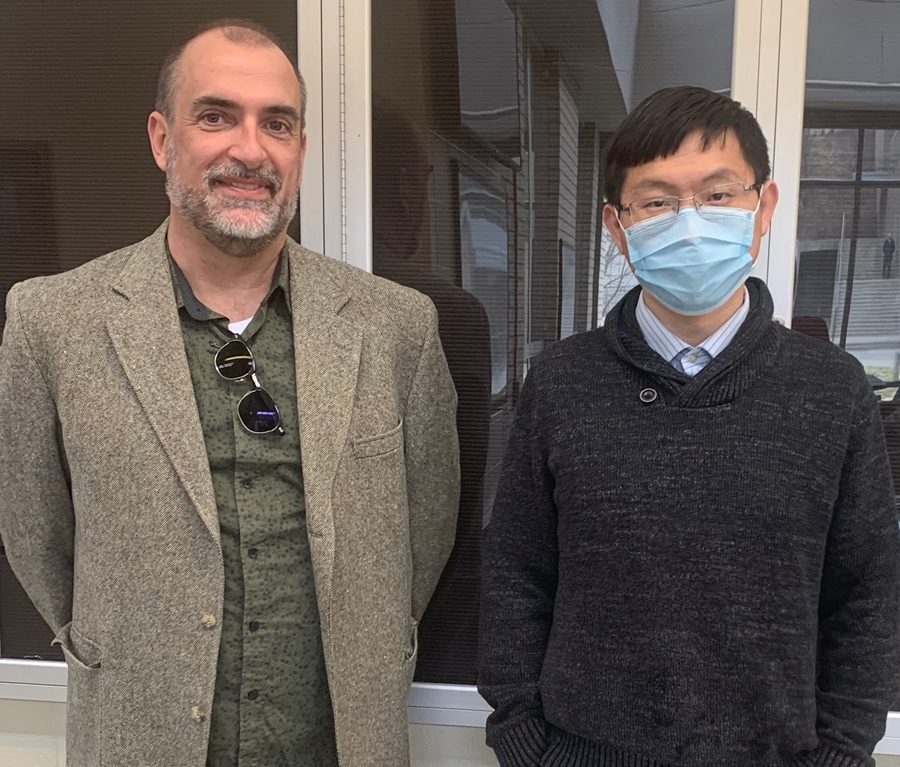Two University of Arkansas researchers have been awarded access to the supercomputer Neocortex, a platform created to accelerate scientific discovery by running artificial intelligence and machine learning models more quickly. This gives scientists and engineers a practical way to test theories in days or weeks rather than months or years.
Funded by a $5 million National Science Foundation grant and located at the Pittsburgh Supercomputing Center, Neocortex facilitates researchers' abilities to handle massive data sets by shortening computer "training," the most time-consuming step in artificial intelligence data analysis. This training teaches a program to recognize specific characteristics in data and leverage them for well-defined tasks; Neocortex enables this step being done exponentially more quickly.
"We are very excited about getting access to Neocortex at the Pittsburgh Supercomputing Center," said Han Hu, assistant professor of mechanical engineering. "This powerful, groundbreaking AI system will accelerate our research on data-driven modeling of thermal transport processes."
Hu's research into thermal transport processes is critical to the development of high-performance cooling technologies for microelectronics, hybrid vehicles, data centers and other applications. Neocortex will help Hu develop and evolve his theories and research.
Jeff Pummill, co-director of the Arkansas High Performance Computing Center, said a key component of the center's work is identifying and evaluating new computing systems such as Neocortex that may provide significant research advantages to computational scientists.
"We are seeing increased interest among researchers across campus to use machine learning and neural networks, and it's critical to be aware of new technologies that can potentially increase our competitiveness. Dr. Hu's project is an ideal opportunity to benchmark capabilities between the current systems and new custom supercomputers designed specifically for certain types of problems," Pummill said.
Supporting the research in cooling technologies for microelectronics advanced by Hu and Pummill with Neocortex is highly exciting, said Paola S. Buitrago, Neocortex principal investigator and project director, and director of AI and big data at the Pittsburgh Supercomputing Center.
"We look forward to continue democratizing access to game-changing hardware that can and will enable the next breakthroughs powered by deep learning and artificial intelligence," Buitrago said.
Pummill said he and Hu will have access to Neocortex for a year, although extensions are often granted to researchers who are making significant progress. Access to Neocortex was granted as part of a competitive proposal process, though there is no monetary cost for use as the system was funded by the NSF.
Topics
Contacts
Jeff Pummill, co-director
Arkansas High Performance Computing Center
479-575-4590, jpummil@uark.edu
